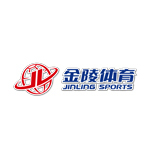Jinling Sports(300651)
Search documents
金陵体育(300651) - 第八届董事会第一次会议决议公告
2025-10-09 11:30
1.审议通过《关于选举第八届董事会董事长的议案》; 经选举一致同意李春荣先生为江苏金陵体育器材股份有限公司董事长,任期 三年,任期自本次董事会决议通过之日起至第八届董事会届满之日止。 表决结果:同意 8 票,反对 0 票,弃权 0 票。 上述议案,不需提交股东会审议。 证券代码:300651 证券简称:金陵体育 公告编号:2025-093 江苏金陵体育器材股份有限公司 第八届董事会第一次会议决议公告 本公司及董事会全体成员保证信息披露内容的真实、准确和完整,没有虚假 记载、误导性陈述或重大遗漏。 一、董事会会议召开情况 江苏金陵体育器材股份有限公司第八届董事会第一次会议经全体董事一致 同意豁免通知时限要求,本会议通知于 2025 年 10 月 9 日以电话方式向各位董事 发出,于 2025 年 10 月 9 日在公司会议室以现场及通讯的方式召开。经全体董事 推选,本次会议由公司董事长李春荣先生主持,会议应到董事 8 名,实到 8 名, 公司高级管理人员参会。本次董事会会议的召集、召开和表决程序符合《公司法》 等法律、法规及《公司章程》的有关规定,合法有效。 二、董事会会议审议情况 (4)薪酬与考核委员会成员: ...
金陵体育(300651) - 关于召开2025年第二次临时股东会的提示性公告
2025-09-29 08:26
证券代码:300651 证券简称:金陵体育 公告编号:2025-091 江苏金陵体育器材股份有限公司 关于召开 2025 年第二次临时股东会的提示性公告 本公司及董事会全体成员保证信息披露的内容真实、准确、完整,没有虚假记载、误 导性陈述或重大遗漏。 江苏金陵体育器材股份有限公司(以下简称"公司")于2025年9月16日披露了 《关于召开2025年第二次临时股东会的通知》(公告编号:2025-088),公司董事 会决定于2025年10月9日召开2025年第二次临时股东会。为进一步保护投资者合法权 益,提醒公司股东及时参加本次股东会并行使表决权,现再次将有关事项公告如下: 一、召开会议的基本情况 2.股东会的召集人:公司董事会 3.会议召开的合法、合规性:公司第七届董事会第三十四次会议审议通过《关于 提请召开2025年第二次临时股东会的议案》,本次股东会会议的召开、召集程序符合有 关法律、行政法规、部门规章、规范性文件和公司章程等的规定; 1.股东会届次:2025年第二次临时股东会 4.会议召开的日期、时间: (1)现场会议召开时间:2025年10月9日(星期四)14:00; (2)网络投票日期与时间:2025 ...
金陵体育(300651) - 关于使用闲置自有资金购买理财的公告
2025-09-23 08:06
证券代码:300651 证券简称:金陵体育 公告编号:2025-090 1. 购买理财的目的 江苏金陵体育器材股份有限公司 关于使用闲置自有资金购买理财的公告 本公司及董事会全体成员保证信息披露内容的真实、准确和完整,没有虚假 记载、误导性陈述或重大遗漏。 重要内容提示: 1、投资种类:公司将按照相关规定严格控制风险,对理财产品进行严格评估、筛 选,选择流动性好、安全性高的、具有合法经营资格的金融机构销售的投资产品(公司 及子公司在上述额度内购买的理财产品仅限于银行、证券公司金融机构发行的安全性 高、流动性好、中、低风险的理财产品或债券产品,预期收益高于同期银行存款利率, 不涉及高风险投资)。相关产品品种不涉及《深圳证券交易所上市公司自律监管指引 第 2 号——创业板上市公司规范运作》中规定的证券投资与衍生品交易等高风险投资。 公司投资理财产品,不得用于股票及其衍生产品、证券投资基金和以证券投资为目的 的投资。 2、投资金额:不超过人民币 2 亿元,在上述额度内资金可循环滚动使用。 3、特别风险提示:公司本着维护股东及公司利益的原则,将风险防范放在首位, 对理财产品投资严格把关,谨慎决策;但金融市场受宏观经济 ...
金陵体育(300651) - 江苏金陵体育器材股份有限公司第七届董事会第三十五次会议决议公告
2025-09-23 08:06
证券代码:300651 证券简称:金陵体育 公告编号:2025-089 江苏金陵体育器材股份有限公司 第七届董事会第三十五次会议决议公告 本公司及董事会全体成员保证信息披露内容的真实、准确和完整,没有虚假 记载、误导性陈述或重大遗漏。 一、董事会会议召开情况 2025 年 9 月 23 日,江苏金陵体育器材股份有限公司第七届董事会第三十五 次会议以现场表决的方式在公司会议室举行,会议通知于 2025 年 9 月 12 日以电 话方式发出。应出席会议的董事 7 人,实际出席会议的董事 7 人,公司高管列席 了本次董事会,会议由公司董事长李春荣先生主持。 具体内容详见刊载在巨潮资讯网(www.cninfo.com.cn)的《关于使用闲置 自有资金购买理财的的公告》。 上述议案,同意 7 名,反对 0 名,弃权 0 名。符合《公司法》的规定,议案 审议通过。 上述议案,不需提交股东大会审议。 三、备查文件 1.第七届董事会第三十五次会议决议 特此公告。 江苏金陵体育器材股份有限公司董事会 2025 年 9 月 23 日 本次董事会会议的召集、召开和表决程序符合《公司法》等法律、法规及《公 司章程》的有关规定,合法有 ...
文娱用品板块9月22日跌0.7%,金陵体育领跌,主力资金净流出8327.68万元





Zheng Xing Xing Ye Ri Bao· 2025-09-22 08:47
Market Overview - The entertainment products sector experienced a decline of 0.7% on September 22, with Jinling Sports leading the drop [1] - The Shanghai Composite Index closed at 3828.58, up 0.22%, while the Shenzhen Component Index closed at 13157.97, up 0.67% [1] Individual Stock Performance - Huali Technology saw a closing price of 29.49, with an increase of 4.28% and a trading volume of 75,900 shares, amounting to a transaction value of 222 million yuan [1] - Zhejiang Zhengte closed at 51.48, up 2.55%, with a trading volume of 8,812 shares and a transaction value of 45.15 million yuan [1] - Shuhua Sports closed at 9.75, up 1.77%, with a trading volume of 87,200 shares [1] - Jinling Sports led the decline with a closing price of 24.14, down 3.40%, and a trading volume of 112,400 shares, resulting in a transaction value of 271 million yuan [2] Capital Flow Analysis - The entertainment products sector saw a net outflow of 83.28 million yuan from institutional investors, while retail investors contributed a net inflow of 22.56 million yuan [2][3] - Major stocks like Shuhua Sports and Huali Technology had mixed capital flows, with Shuhua Sports experiencing a net inflow of 15.07 million yuan from institutional investors [3] - Retail investors showed a significant net outflow from stocks like Huali Technology, amounting to 25.45 million yuan [3]
金陵体育跌2.03%,成交额1.94亿元,主力资金净流出231.08万元
Xin Lang Cai Jing· 2025-09-18 02:21
Core Viewpoint - Jinling Sports has experienced a significant stock price increase of 104.80% year-to-date, despite a recent decline in trading performance [1][2]. Group 1: Stock Performance - On September 18, Jinling Sports' stock price fell by 2.03%, reaching 25.62 CNY per share, with a trading volume of 194 million CNY and a turnover rate of 8.53% [1]. - The company has seen a net outflow of 2.31 million CNY in principal funds, with large orders buying 31.94 million CNY (16.50%) and selling 37.07 million CNY (19.14%) [1]. - Over the past five trading days, the stock has decreased by 0.50%, while it has increased by 4.57% over the last 20 days and decreased by 7.07% over the last 60 days [1]. Group 2: Company Overview - Jinling Sports, established on March 25, 2004, and listed on May 9, 2017, is located in Zhangjiagang, Jiangsu Province, and specializes in the research, production, and sales of sports equipment and venue facilities [2]. - The company's revenue composition includes: ball equipment (45.44%), other sports equipment (12.18%), event services (9.91%), venue facilities (9.08%), athletics equipment (8.88%), and others [2]. - As of June 30, the number of shareholders increased by 87.32% to 20,900, with an average of 3,662 circulating shares per person, a decrease of 45.58% [2]. Group 3: Financial Performance - For the first half of 2025, Jinling Sports reported a revenue of 132 million CNY, a year-on-year decrease of 13.60%, while the net profit attributable to shareholders increased by 29.44% to 17.43 million CNY [2]. - The company has distributed a total of 114 million CNY in dividends since its A-share listing, with 54.07 million CNY distributed over the past three years [3].
金陵体育跌2.03%,成交额1.58亿元,主力资金净流出1101.53万元
Xin Lang Cai Jing· 2025-09-16 02:46
Core Viewpoint - Jinling Sports has experienced a significant stock price increase of 92.57% year-to-date, despite a recent decline in stock performance over the past 60 days [1][2]. Group 1: Stock Performance - On September 16, Jinling Sports' stock price fell by 2.03%, trading at 24.09 CNY per share with a total market capitalization of 3.402 billion CNY [1]. - The stock has seen a trading volume of 1.58 billion CNY, with a turnover rate of 7.37% [1]. - Year-to-date, the stock has risen by 92.57%, with a slight increase of 0.50% over the last five trading days and a 4.74% increase over the last 20 days, but a decline of 15.44% over the last 60 days [1]. Group 2: Financial Metrics - As of June 30, Jinling Sports reported a revenue of 132 million CNY for the first half of 2025, a year-on-year decrease of 13.60%, while the net profit attributable to shareholders was 17.43 million CNY, reflecting a year-on-year increase of 29.44% [2]. - The company has distributed a total of 114 million CNY in dividends since its A-share listing, with 54.07 million CNY distributed over the past three years [3]. Group 3: Business Overview - Jinling Sports, established on March 25, 2004, and listed on May 9, 2017, specializes in the research, production, and sales of sports equipment and venue facilities, as well as sports event services [2]. - The company's revenue composition includes 45.44% from ball equipment, 12.18% from other sports equipment, 9.91% from event services, and 9.08% from venue facilities, among others [2]. - Jinling Sports is categorized under the light industry manufacturing sector, specifically in entertainment products, and is associated with concepts such as the World Cup and the sports industry [2].
“黑科技”渗透体育全场景 驱动产业数智化跃迁
Zheng Quan Shi Bao· 2025-09-15 18:34
Group 1: Core Insights - The integration of advanced technologies such as AI, 5G, and virtual reality is transforming the sports consumption landscape, enhancing user experience and operational efficiency [1][3][7] - Shenzhen's sports center has become a benchmark for the "sports + technology" integration, showcasing significant upgrades in infrastructure and technology to support large-scale events [2][5] - The sports industry in China is experiencing robust growth, with a focus on technological advancements and innovative business models to drive consumer engagement and market expansion [4][6][7] Group 2: Technological Advancements - The implementation of smart technologies in sports venues, including AI security and energy management systems, is redefining operational practices and enhancing visitor experiences [2][5] - Wearable devices and smart equipment are enabling personalized training and real-time performance tracking, contributing to a more engaging sports experience [3][8] - The rise of "black technology" is creating new consumer demands and driving the evolution of the sports industry from single events to comprehensive ecosystems [8][9] Group 3: Market Dynamics - The Chinese sports equipment industry is witnessing significant growth, with over 63,000 manufacturers and a market value increase from 1.12 trillion yuan in 2015 to over 1.5 trillion yuan, reflecting a 34% growth [7] - Major companies are strategically positioning themselves in the market by leveraging technology and expanding their service offerings, particularly in smart venue management and event operations [5][6] - The global market for smart wearable sports devices is projected to grow from $132.4 billion in 2024 to $265.9 billion by 2029, indicating a compound annual growth rate of 15% [8]
金陵体育:徐燕女士当选为公司第八届董事会职工董事
Zheng Quan Ri Bao· 2025-09-15 14:08
Core Points - Jinling Sports announced the appointment of Ms. Xu Yan as the employee director of the company's eighth board of directors [2] Company Summary - The announcement was made on the evening of September 15 [2] - The appointment reflects the company's commitment to employee representation in its governance structure [2]
金陵体育(300651) - 独立董事提名人声明与承诺(陈和平)
2025-09-15 11:46
证券代码: 300651 证券简称: 金陵体育 江苏金陵体育器材股份有限公司 独立董事提名人声明与承诺 提名人江苏金陵体育器材股份有限公司董事会现就提名陈和平为江苏金 陵体育器材股份有限公司第八届董事会独立董事候选人发表公开声明。被提名 人已书面同意作为江苏金陵体育器材股份有限公司第八届董事会独立董事候 选人(参见该独立董事候选人声明)。本次提名是在充分了解被提名人职业、 学历、职称、详细的工作经历、全部兼职、有无重大失信等不良记录等情况后 作出的,本提名人认为被提名人符合相关法律、行政法规、部门规章、规范性 文件和深圳证券交易所业务规则对独立董事候选人任职资格及独立性的要求, 具体声明并承诺如下事项: 一、被提名人已经通过江苏金陵体育器材股份有限公司第八届董事会提名 委员会或者独立董事专门会议资格审查,提名人与被提名人不存在利害关系或 者其他可能影响独立履职情形的密切关系。 是 □ 否 如否,请详细说明:______________________________ 二、被提名人不存在《中华人民共和国公司法》第一百四十六条等规定不 得担任公司董事的情形。 是 □ 否 如否,请详细说明:____________ ...

